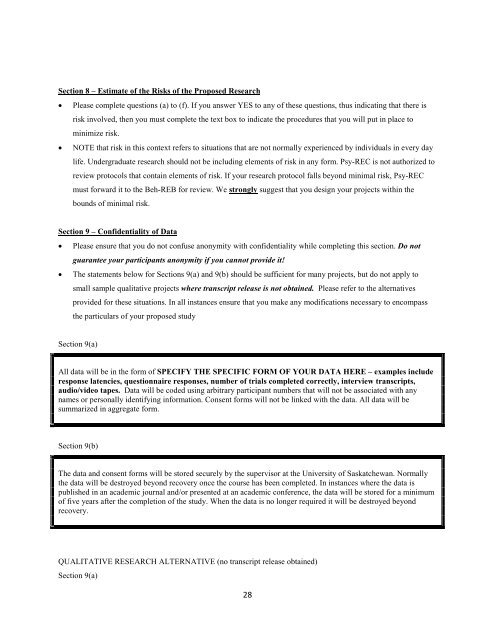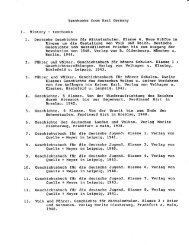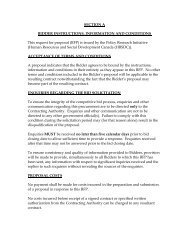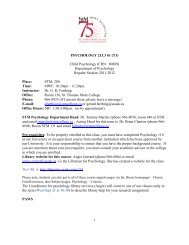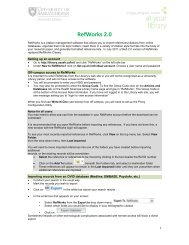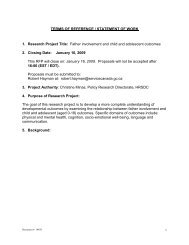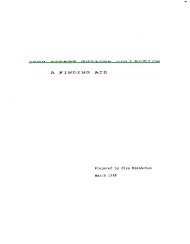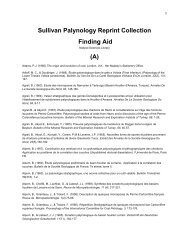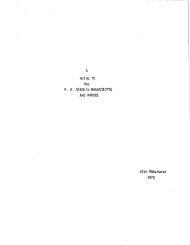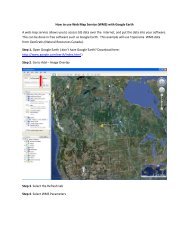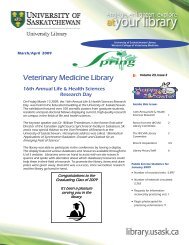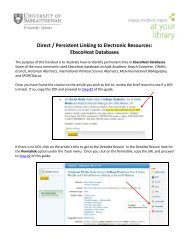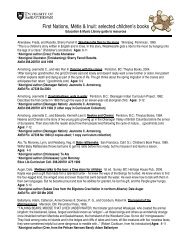St. Thomas More College, University of Saskatchewan Department ...
St. Thomas More College, University of Saskatchewan Department ...
St. Thomas More College, University of Saskatchewan Department ...
You also want an ePaper? Increase the reach of your titles
YUMPU automatically turns print PDFs into web optimized ePapers that Google loves.
Section 8 – Estimate <strong>of</strong> the Risks <strong>of</strong> the Proposed Research<br />
• Please complete questions (a) to (f). If you answer YES to any <strong>of</strong> these questions, thus indicating that there is<br />
risk involved, then you must complete the text box to indicate the procedures that you will put in place to<br />
minimize risk.<br />
• NOTE that risk in this context refers to situations that are not normally experienced by individuals in every day<br />
life. Undergraduate research should not be including elements <strong>of</strong> risk in any form. Psy-REC is not authorized to<br />
review protocols that contain elements <strong>of</strong> risk. If your research protocol falls beyond minimal risk, Psy-REC<br />
must forward it to the Beh-REB for review. We strongly suggest that you design your projects within the<br />
bounds <strong>of</strong> minimal risk.<br />
Section 9 – Confidentiality <strong>of</strong> Data<br />
• Please ensure that you do not confuse anonymity with confidentiality while completing this section. Do not<br />
guarantee your participants anonymity if you cannot provide it!<br />
• The statements below for Sections 9(a) and 9(b) should be sufficient for many projects, but do not apply to<br />
small sample qualitative projects where transcript release is not obtained. Please refer to the alternatives<br />
provided for these situations. In all instances ensure that you make any modifications necessary to encompass<br />
the particulars <strong>of</strong> your proposed study<br />
Section 9(a)<br />
All data will be in the form <strong>of</strong> SPECIFY THE SPECIFIC FORM OF YOUR DATA HERE – examples include<br />
response latencies, questionnaire responses, number <strong>of</strong> trials completed correctly, interview transcripts,<br />
audio/video tapes. Data will be coded using arbitrary participant numbers that will not be associated with any<br />
names or personally identifying information. Consent forms will not be linked with the data. All data will be<br />
summarized in aggregate form.<br />
Section 9(b)<br />
The data and consent forms will be stored securely by the supervisor at the <strong>University</strong> <strong>of</strong> <strong>Saskatchewan</strong>. Normally<br />
the data will be destroyed beyond recovery once the course has been completed. In instances where the data is<br />
published in an academic journal and/or presented at an academic conference, the data will be stored for a minimum<br />
<strong>of</strong> five years after the completion <strong>of</strong> the study. When the data is no longer required it will be destroyed beyond<br />
recovery.<br />
QUALITATIVE RESEARCH ALTERNATIVE (no transcript release obtained)<br />
Section 9(a)<br />
28


